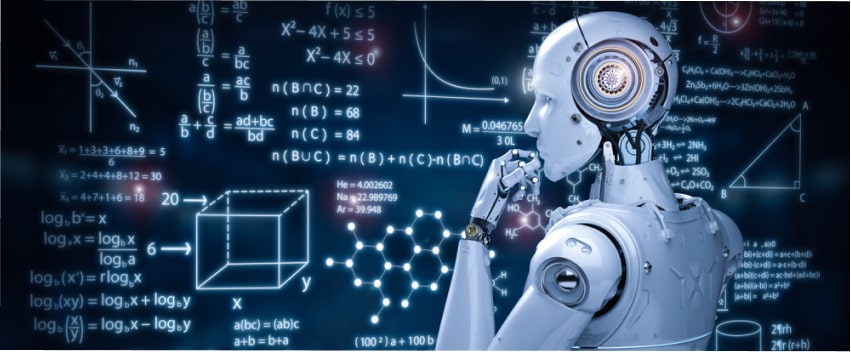Implement App Maintenance Mode with...
November 25, 2025

The rapid evolution of Artificial Intelligence (AI) has impacted almost every industry, and education is no exception. AI is transforming the way we learn, teach, and manage educational systems. As the need for tailored, effective learning increases, AI steps in to provide innovative solutions that make education more engaging, personalized, and efficient.
AI in education isn’t just a futuristic concept—it’s already shaping how students and educators interact, and the potential for growth is immense. From personalized learning plans to AI-driven tutoring systems, this technology is changing the landscape of education for the better.
But how exactly is AI influencing education, and what benefits does it bring? In this comprehensive guide, we’ll explore how AI in education is reshaping the industry and what the future holds.
Artificial Intelligence (AI) refers to the ability of machines to perform tasks that would typically require human intelligence, such as problem-solving, understanding natural language, and learning from data. In the context of education, AI can assist in automating administrative tasks, provide personalized learning experiences, and offer real-time support for students and educators alike.
AI’s potential in education lies in its ability to adapt to the needs of individual learners. With AI, students can receive personalized guidance, helping them to learn at their own pace and in ways that best suit their learning style.
AI-powered systems can analyze data on student performance and learning preferences, allowing educators to tailor lessons to meet the specific needs of each student. This creates a more personalized learning experience, helping students overcome challenges and excel in their studies.
For example, AI-driven platforms like Knewton and Carnegie Learning utilize machine learning algorithms to create adaptive learning environments that adjust to student progress in real-time, making education more efficient and engaging.
AI can simulate the experience of working with a personal tutor. Intelligent tutoring systems (ITS) such as Khan Academy’s Khanmigo and Duolingo offer real-time feedback and guidance, making learning more interactive and engaging. These systems help students by identifying their weaknesses and offering targeted exercises to help them improve.
AI can handle time-consuming tasks such as grading assignments, tracking student progress, and managing schedules. This allows educators to focus more on teaching and interacting with their students, thereby enhancing the overall learning environment.
For instance, AI-driven grading systems can analyze patterns in student work and provide personalized feedback, helping students improve their understanding of the material.
Many universities are now using AI chatbots to provide around-the-clock support for students. These bots can answer common questions, help students navigate course materials, and even provide reminders for important deadlines. Chatbots like those used at Arizona State University help students stay on track without requiring constant human intervention.
AI technologies, such as virtual reality (VR) and augmented reality (AR), are being integrated into classrooms to make learning more immersive. Students can explore historical events, conduct virtual science experiments, or even engage with complex mathematical concepts through these technologies.
AI’s ability to analyze vast amounts of data allows schools to make more informed decisions. By leveraging predictive analytics, educational institutions can forecast enrollment trends, assess student performance, and identify areas for improvement in their curricula.
One of the most significant impacts of AI in education is its ability to enhance the learning experience through various tools and applications. Below are some notable AI-powered educational tools:
For more insights on AI’s role in education, check out our Education App Development Guide for a deep dive into how AI can optimize e-learning solutions.
While AI offers numerous advantages, its implementation in education also brings challenges. Ensuring data privacy, avoiding bias in AI algorithms, and maintaining transparency in AI systems are crucial to ensuring that AI benefits all students fairly.
Schools and educational institutions must take proactive steps to secure student data and use AI responsibly. Building ethical AI frameworks and adopting transparent data practices can mitigate potential risks, making AI’s use in education both safe and effective.
AI also plays a critical role in addressing the digital divide by providing access to quality education for students in remote and underprivileged areas. AI-powered tools can deliver educational resources to underserved communities, ensuring that students everywhere have access to the same learning opportunities.
With AI, students can access tailored learning plans, regardless of their location or economic background. As AI continues to evolve, it will be pivotal in closing the educational gap and making learning more inclusive and accessible for all.
As the education sector continues to adopt AI, its impact is only expected to grow. By offering personalized learning experiences, automating administrative tasks, and improving student engagement, AI is transforming the way we learn and teach. The future of AI in education is bright, with endless possibilities for creating a more efficient, engaging, and inclusive learning environment.
If your institution is looking to harness the power of AI, consider collaborating with a professional eLearning app development company like Inexture Solutions. Together, we can design AI-driven solutions that cater to the unique needs of your educational institution and enhance the learning experience for all students.